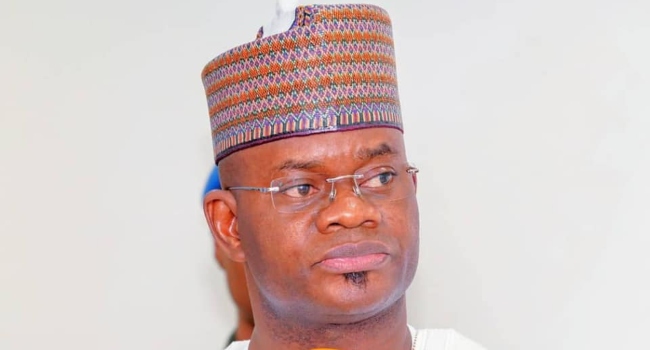Injustice, lack of fair hearing reason for client’s non-appearance in Court, Yahaya Bello’s lawyer tells court
A member of Yahaya Bello’s legal team, Adedayo Adedipe, informed Justice Emeka Nwite of the Federal High Court in Abuja that his client would have willingly attended court proceedings but harbored concerns about receiving a fair trial and justice.
Adedipe relayed Bello’s message to the court after the former governor failed to appear in court for his arraignment on Tuesday. Bello faced a 19-count charge of alleged money laundering amounting to ₦84 billion.
In response to his absence, Justice Nwite instructed the Economic and Financial Crimes Commission (EFCC) to provide a copy of the charge to his lawyer, Abdulwahab Mohamed. Relying on section 384 (4 and 5) of the Administration of Criminal Justice Act 2015, the judge directed Bello’s counsel to accept the charge.
The court emphasized that when it was impractical to serve a legal process on a defendant personally, it could be done through alternative means. Justice Nwite noted that the former governor’s failure to appear for his arraignment was evident.
Despite Mohammed initially refusing to accept the charges and evidence, he was compelled to do so by Justice Nwite. The judge dismissed the request by the senior lawyer for a junior colleague, AI Musa, to accept the charges on behalf of the former governor.
However, Adedipe argued that although Bello was absent due to concerns about receiving a fair trial, he was prepared to face the 19-count charge filed against him by the EFCC.
Adedipe urged the court to rescind the ex-parte arrest order issued against the former governor, asserting that when the order was issued, the charge had not been served on his client.
Bello had previously contended that the EFCC was an unlawful entity, asserting that the Federal Government did not seek input from the 36 states of the federation before passing the EFCC Act through the National Assembly.
He highlighted that according to section 12 of the 1999 Constitution as amended, the various Houses of Assembly were required to endorse the act before it could be implemented.
However, counsel to the EFCC, Kemi Phinheiro, urged the court to reject the application, emphasizing that the arrest warrant should remain valid until the defendant presents himself for trial.
Phinheiro argued that Bello lacked the legal basis to file multiple applications while in hiding, asserting that his actions were merely delaying tactics.
He suggested that the primary concern was determining Bello’s whereabouts, and if he wished to challenge the arrest order, he should appear in court to do so.
Justice Nwite then directed that the charge sheet related to the ₦84 billion fraud allegation against Bello be provided to his lawyer.
The EFCC clarified that it would not execute the arrest warrant until Bello’s counsel guarantees his presence at the next scheduled hearing.
Last week, Justice Nwite issued a bench warrant against Bello following a request from the EFCC.
Subsequently, the EFCC declared the former governor wanted for consistently failing to appear in court and evading the criminal charges against him.



